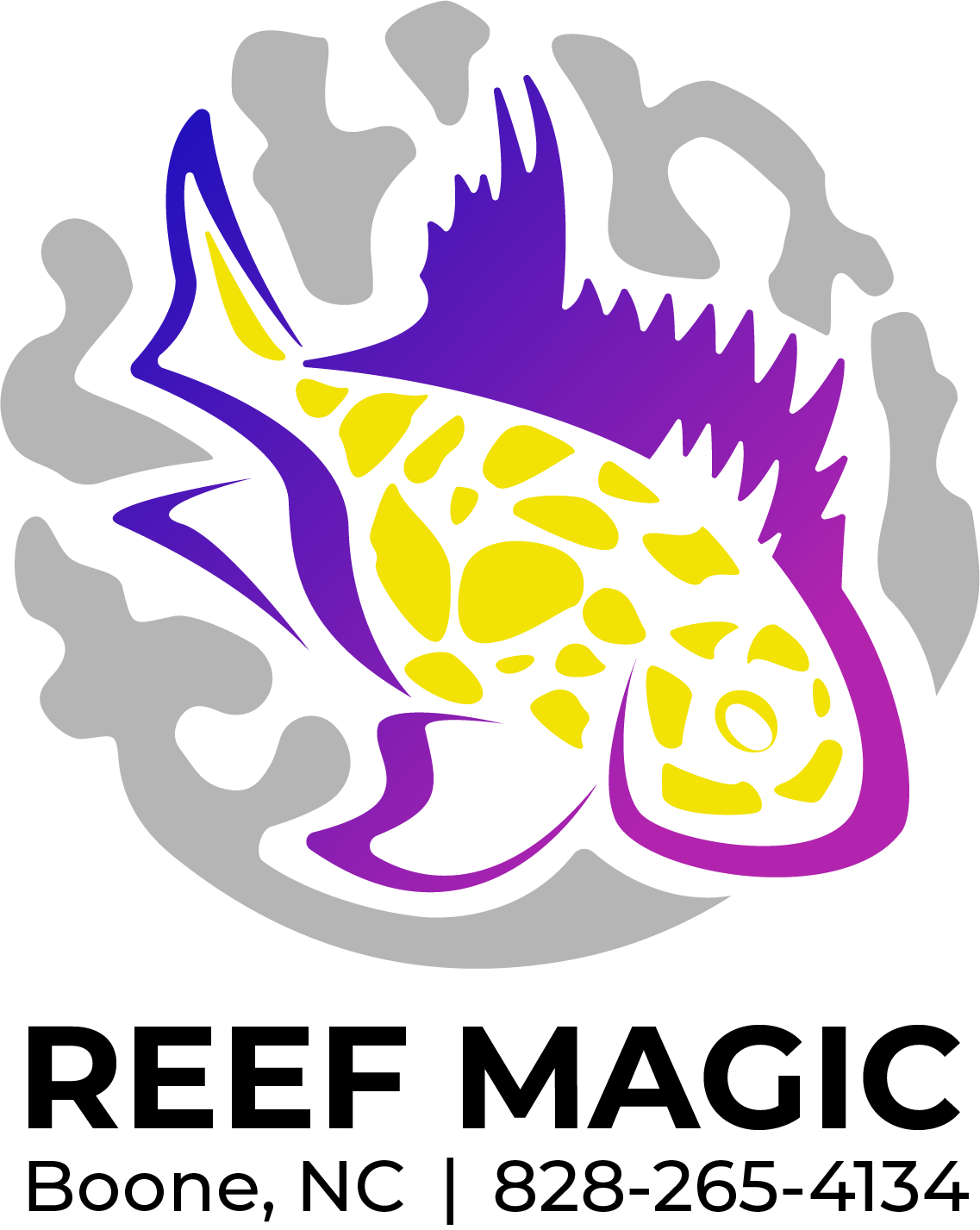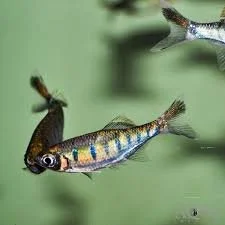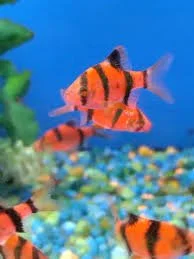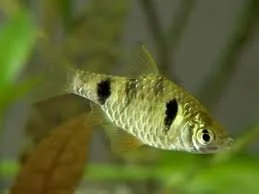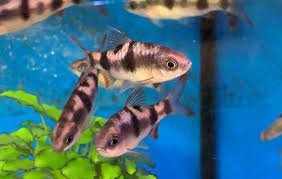 Image 1 of 1
Image 1 of 1


Barb - Arulius
The Arulius Barb is a torpedo-shaped fish from southwestern India with a brownish-olive back, lighter sides, and a white belly. It features three distinct black vertical blotches: one above the pelvic fin, one above the anal fin, and one on the base of the caudal fin. Males develop longer dorsal filaments as they mature. They are an active, schooling species that should be kept in groups and thrive in well-oxygenated, flowing water, similar to their natural habitat in streams and rivers.
Appearance
Body shape: Torpedo-shaped
Coloration: Dark brownish-olive back, lighter sides, and white belly
Markings: Three distinct black vertical blotches: one over the pelvic fin, one over the anal fin, and one at the base of the caudal fin
Fins: Thin and translucent; the caudal fin can have reddish-orange tips in adults
Male characteristics: Males develop elongated, thread-like filaments on their dorsal fins
Behavior and social needs
Social: Shoaling fish that should be kept in groups of at least 5 to 6 individuals
Activity: Fast-moving and active
Temperament: Generally peaceful but can be aggressive towards smaller, slower fish due to their speed
Diet: Omnivorous, feeding on a variety of prepared and frozen foods
Habitat and care
Natural habitat: Clear water streams and rivers with moderate to fast flow
Tank requirements:
Filtration and flow: Needs strong filtration and good water movement, resembling a flowing stream
Water quality: Sensitive to poor water quality and requires regular water changes (30-50% weekly)
Tank setup: Aquascaping with rocks, sand, and driftwood is recommended
Water parameters:
pH: 6.5–7.5
Temperature: 76–80°F (24–27°C)
The Arulius Barb is a torpedo-shaped fish from southwestern India with a brownish-olive back, lighter sides, and a white belly. It features three distinct black vertical blotches: one above the pelvic fin, one above the anal fin, and one on the base of the caudal fin. Males develop longer dorsal filaments as they mature. They are an active, schooling species that should be kept in groups and thrive in well-oxygenated, flowing water, similar to their natural habitat in streams and rivers.
Appearance
Body shape: Torpedo-shaped
Coloration: Dark brownish-olive back, lighter sides, and white belly
Markings: Three distinct black vertical blotches: one over the pelvic fin, one over the anal fin, and one at the base of the caudal fin
Fins: Thin and translucent; the caudal fin can have reddish-orange tips in adults
Male characteristics: Males develop elongated, thread-like filaments on their dorsal fins
Behavior and social needs
Social: Shoaling fish that should be kept in groups of at least 5 to 6 individuals
Activity: Fast-moving and active
Temperament: Generally peaceful but can be aggressive towards smaller, slower fish due to their speed
Diet: Omnivorous, feeding on a variety of prepared and frozen foods
Habitat and care
Natural habitat: Clear water streams and rivers with moderate to fast flow
Tank requirements:
Filtration and flow: Needs strong filtration and good water movement, resembling a flowing stream
Water quality: Sensitive to poor water quality and requires regular water changes (30-50% weekly)
Tank setup: Aquascaping with rocks, sand, and driftwood is recommended
Water parameters:
pH: 6.5–7.5
Temperature: 76–80°F (24–27°C)
